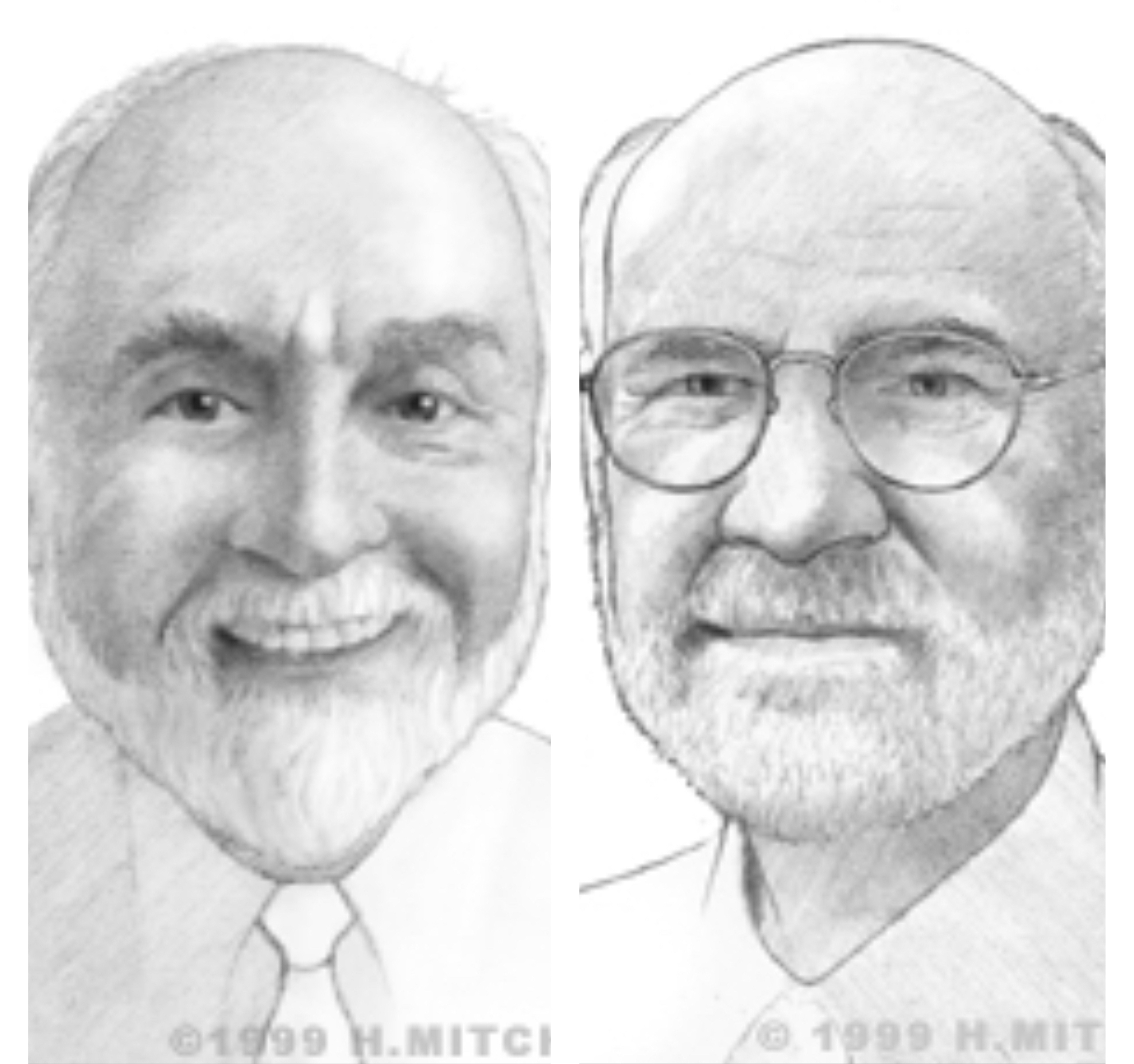Art Fry & Spencer Silver
In the 1970s, Art Fry invented what is probably the most significant office supply product since the paperclip: the Post-it® Note. But he could not have created this now ubiquitous item without the previous invention of his colleague, Spencer Silver.
Arthur L. Fry was born in Minnesota and grew up first in a small town in Iowa and later in Kansas City. As a child, he was already a tinkerer and a problem solver. His earliest engineering efforts were devoted to creating custom-designed toboggans from scrap lumber. Fry began his education in a one-room rural schoolhouse, but in the early 1950s, he moved on to the University of Minnesota, majoring in chemical engineering. In 1953, while still an undergraduate, Fry began working for 3M in New Product Development, where he continued to work until his retirement in the early 1990s.
Spencer F. Silver was born in San Antonio. He majored in chemistry at Arizona State University (BS, 1962), then earned a doctorate in organic chemistry from the University of Colorado (PhD, 1966), before taking a position as a senior chemist in 3M's Central Research Labs. Silver still works at 3M, specializing in Adhesives Technology. But Silver's creativity is not confined to his career. Over the years, he has also won a reputation as an accomplished painter in pastels and oils.
Silver is named on 37 U.S. patents, but his most significant invention was not an immediate success. In 1968, Silver developed a high-quality but "low-tack" adhesive, made of tiny, indestructible acrylic spheres that would stick only where they were tangent to a given surface, rather than flat up against it. As a result, the adhesive's grip was strong enough to hold papers together but weak enough to allow the papers to be pulled apart again without being torn. More importantly, the adhesive could be used in the same way again and again. Silver wanted to market the adhesive as a spray or as a surface for bulletin boards on which temporary notices could be easily posted and then removed.
Over the next five years, Silver shared his revolutionary product with colleagues at 3M, informally and in seminar presentations. A marketable form of the product proved elusive, and Silver's temporary adhesive might have been consigned to a shelf indefinitely, but then Art Fry attended one of Silver's seminars.
While Silver had been painting in his spare time, Fry sang in his church choir. Fry was frustrated by the fact that when he stood and opened his hymnal to sing, the paper bookmarks that he used in his hymnal to mark the songs on the program would slip out of sight or even onto the floor. In a moment of insight that has become legendary in the realm of contemporary invention, Fry, musing during a rather boring sermon, realized that Silver’s reusable adhesive would provide his bookmarks with precisely the temporary anchoring he required.
Returning to work, Fry wrote up his idea for a reliable, reusable bookmark, and presented it to his supervisors. Management initially worried that the product would seem wasteful, but the staff could not get enough of the samples Fry was passing around. Soon, 3M gave the invention its full support. It took another five years to perfect the specifications and design machines to manufacture the product, but in 1980, Post-it® Notes were introduced nationwide.
Within two years, Post-it® Notes were established as an outright necessity in the office. As the basic product evolved into an entire product line, Post-its® could also be found in most schools, labs, libraries, and even in homes. Meanwhile, both Spencer Silver and Art Fry became heroes of innovation. They have both won 3M's highest honors for research and numerous awards within the international engineering community.
Spencer Silver sadly died of a heart condition in May of 2021 at the age of 80. He received many awards during his lifetime, including the American Chemical Society Award for Creative Invention, and he was inducted into the National Inventors Hall of Fame in 2010 and Minnesota Science & Technology Hall of Fame in 2011.


